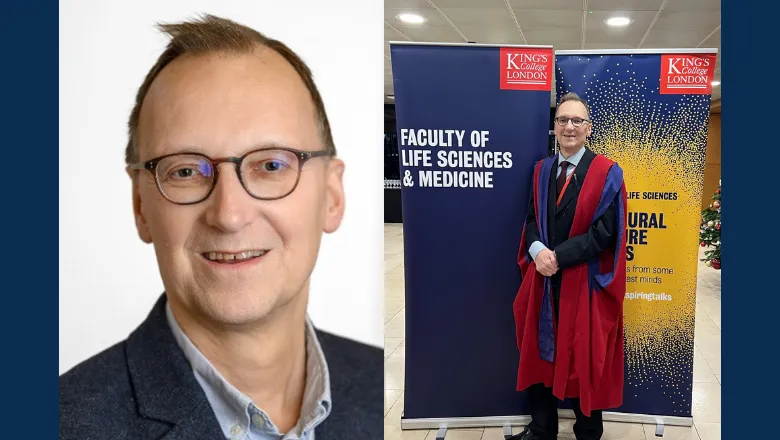11 October 2024
A Tribute to Professor Mark Ashworth
We are deeply saddened to share the news that Professor Mark Ashworth, Professor of Primary Care passed away earlier this week.

A Lambeth GP for 30 years, Professor Ashworth was passionate about academic research in primary care, informed by his experiences in clinical practice. In his own words, he ‘loved every moment of General Practice’, and saw being embedded within the life of the local community as a huge privilege. He believed passionately that all communities, particularly those in deprived areas, should have access to excellence in terms of clinical care, and much of his recent research focused on use of ‘big data’ to better understand multimorbidity, health inequalities and the interface between mental health and physical health conditions.
Professor Ashworth obtained his medical degree from the University of Southampton in 1979, before going on to study tropical medicine at the London School of Hygiene. That took him to India and Nepal, where he studied the immunology of Mycobacterium leprae, the bacteria which causes leprosy, as well as carrying out research into bladder stones.
He joined the Hurley Clinic GP practice in Kennington in 1986, which is where his interest in the assessment of mental health and managing substance dependency in primary care began. Working with Professor Michael King and others at the Institute of Psychiatry, he was involved in a series of Benzodiazepine withdrawal studies and trials. He went on to develop PSYCHLOPS, a unique patient generated outcome measure of mental health interventions, which has now been adopted globally in a range of studies by the World Health Organization and others.
2005 saw the launch of Lambeth DataNet, an anonymised database of 1.6m patients, including 420,000 currently registered with GP practices in the borough. Professor Ashworth played a key role in the setting up and subsequent oversight of the database. The advantage of the DataNet is the level of granularity it can provide. Linked to deprivation and ethnicity data, it generates valuable insights on health inequalities. Professor Ashworth left NHS general practice in 2016 to focus on his academic research, and much of his subsequent work on multimorbidity and the interaction of different long term conditions in different patient populations drew on data from the Lambeth DataNet.
Alongside his own research interests, Professor Ashworth was known and valued as an extraordinary collaborator, providing a primary care perspective to researchers across disciplines ranging from pollution and the environment to maternity and child health.
Professor Ajay Shah, Executive Dean of the Faculty of Life Sciences & Medicine, who worked with Professor Ashworth during the pandemic, said: "His warmth, respect for colleagues, and his unfailing commitment to seeing the best in people shone through all his professional interactions, and over the course of his career, he inspired and mentored generations of students and young academics. His loss will be felt deeply across the Faculty and beyond."
Dr Rachna Chowla, Joint Director of Clinical Strategy at King’s Health Partners, and a GP in Southwark said: "Professor Mark Ashworth was a much-loved friend and colleague whose work to highlight health inequalities and to support clinical effectiveness approaches in primary care continues to make a real difference to patients in south east London. More recently, Mark had started to visit local boroughs to champion the role of primary care in research, infecting others with his enthusiasm, as only he could. Mark’s door was always open for his colleagues, whether for advice on something technical, or just for warm words of support and wisdom offered over coffee and cake. It was a joy to have known him, and he will be dearly missed."
